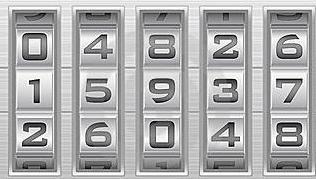MARS EXPLORATION:
Sami's spaceship crashed on Mars! She sends sequential
SOS messages to Earth for help.
Letters in some of the
SOS messages are altered by cosmic radiation during transmission. Given the signal received by Earth as a string, , determine how many letters of Sami's SOS have been changed by radiation.
Input Format
There is one line of input: a single string, .
Note: As the original message is just
SOS repeated times, 's length will be a multiple of .
Constraints
- will contain only uppercase English letters.
Output Format
Print the number of letters in Sami's message that were altered by cosmic radiation.
Sample Input 0
SOSSPSSQSSOR
Sample Output 0
3
Sample Input 1
SOSSOT
Sample Output 1
1
Explanation
Sample 0
= SOSSPSSQSSOR, and signal length . Sami sent
SOS messages (i.e.: ).
Expected signal: SOSSOSSOSSOS
Recieved signal: SOSS
Recieved signal: SOSS
PSSQSSOR
We print the number of changed letters, which is .
Sample 1
= SOSSOT, and signal length . Sami sent
SOS messages (i.e.: ).
Expected Signal: SOSSOS
Received Signal: SOSSO
Received Signal: SOSSO
T
We print the number of changed letters, which is .
import java.io.*;
import java.util.*;
import java.text.*;
import java.math.*;
import java.util.regex.*;
public class Solution {
public static void main(String[] args) {
Scanner in = new Scanner(System.in);
String S = in.next();//taking input string
int n=S.length(); //getting length
int r=n/3; //we divide string by length of "SOS" string i.e. 3.
String w="SOS";
String q="SOS";
for(int i=0;i<r-1;i++)
{
q= q.concat(w);//making original string of "SOS" that was send by her
}
int count=0;
for(int j=0;j<q.length();j++)
{
if(S.charAt(j)!=q.charAt(j))//comparing original string and the recieved string .
count++; //counting number of errors
}
System.out.println(count);//printing errors
}
}
